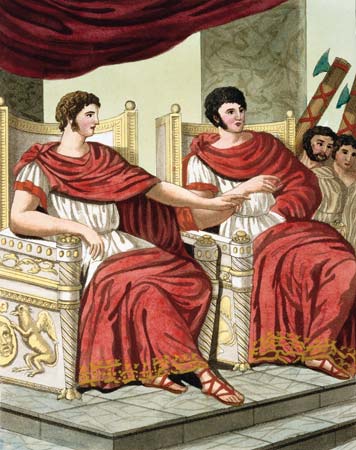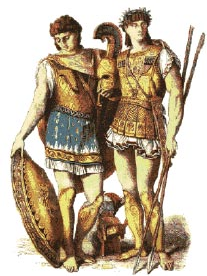It is natural to seek explanations. And we are very successful in doing this with inanimate things, as in physics and chemistry. When it comes to living things — well, it gets fuzzy. And when it comes to explaining human activity, it gets to be perplexing. There is in humans something analogous to Aristotle’s saying that “nature abhors a vacuum.” It is to the effect that “the human psyche abhors a tabula rasa.” The result: myths. And in everyday life, there is the aversion to acknowledge ignorance; hence, the production of some claim or other — bullshit.
Why am I dwelling on this. It has to do with my very long uneasiness with claims to “influence.” In trying to understand the actions (including the linguistic acts of writing), all types of explanations are sought. And since causal explanations like those in physics or chemistry are out of place, some other explanations are sought. These are segregated into “influences” and “reasons.” “Reasons” I understand; “influences” leave me puzzled.
Reflecting on my own history. I would say that I was influences by the writings of Wilfrid Sellars and C. D. Broad — among others. How so? Simply in the fact that I read them and critically reflected on what they claimed or argued for. Did I agree with them? In some things, yes; in other things, no.
Alfred North Whitehead, in his book Science and the Western World, talked about presuppositions of the age. And Eric Dodds, in his Greeks and the Irrational, talked about an “inherited conglomerate.” Stephen Pepper talked about “World Hypotheses” as based on models and analogies. And when Descartes said “Cogito ergo sum,” he could have been a bit more reflective in recognizing that what he wrote was in a language. Call this linguistically presupposed set of implicit beliefs, a Weltanschauung. Given this understanding, I would acknowledge that I, and everyone else, is influenced by a Weltanschuung, which has a temporal and a geographical location.
Why am I dwelling on this? I am interested in politics and economics, and I have read a few books which I have tried to juxtapose with each other. Incidentally, I keep discovering old books which seem to be excellent, but which I have never heard of either in my experience with higher education, not in current articles or books . . . But then reflecting on the fact that most books in a library are picking up dust . . .
Anyway, I read Oppenheimer’s The State, and he makes constant reference to Ratzel’s “History of Mankind” and Gumplowicz’s “Der Rassenkamp.” I have also recently read some Max Weber and some Karl Marx. And most recently I have returned to Karl Popper’s The Open Society and Its Enemies. Popper is concerned with what he calls “totalitarianism,” which is exemplified by Hitler and Nazi Germany. The Closed Society, he identifies with Tribalism, which in modern times expresses itself, for Popper, as Nationalism. Such a society has a Leader, who has a plan of Holistic or Utopian Engineering. Such totalitarian societies are closed to criticism through censorship.
Popper does a Herculean labor of examining the views of practically the whole history of philosophy, and his criticisms are to the point, insightful, and convincing for the most part. He is critically examing the political views of philosophers and some economists. If one were to justify or rationalize totalitarian practices — then yes, this is the sort of study to do. But such a study as Popper’s is relevant only to scholars who study and criticize the apologists of totalitarianism.
But understanding and explaining totalitarianism is a different matter. But really, how, for example, are the views of political and economic writers relevant to what Hitler did. If Hitler created a totalitarian State, the question should be how and why. Let us compare the mind of Hitler and that of Trump in some respects — like reading. Hitler, I assume was a sincere chauvinistic Nationalist, in the sense that he believed that Germans were superior to others and that Germans should be settled in the regions of Ukraine, by wiping out the indigenous populations. (Remind you of the American treatment of Native Americans? Or the colonial practices of England in Africa and India? Of the Belgian treatment of the Congo?) I suppose Rudyard Kipling’s phrase “white man’s burden” is a rationalization and an encouragement for Americans to take over the Philippines in 1898.
From one perspective, what Hitler did was a form of colonization which all of Europe had been practicing in remote regions of the world; in particular, Hitler followed the American plan of manifest destiny by expanding the German homeland. Other European countries justified themselves by the “white man’s burden” in respect to savages. Well, Hitler extended the coverage of “savages” to include Jews, Gypsies, and Slavs. And where others killed the indigenous people in makeshift ways, he did it efficiently. It is said that he modeled himself after the Armenian genocide of 1915 and the herding of American natives into reservations (concentration camps).
I don’t see how Popper’s book explains what Hitler did, as it would not explain anything which Trump does. Hitler took the practice of colonialism in a direction adjacent to Germany; while Trump will continue American imperialism, not because of any theory, but because he has the power, and he will use it for his own benefit, as he sees fit. As far as I know, neither Hitler nor Trump are intellectuals of any depth — so the literary tradition of the scholar has no relevance for them.
What is the relevant question? How does a person like Hitler or Trump get such power? And the answer is straightforward. There is the almost universal political practice in the world to give power to a single individual — a monarch, a president, a prime minister, a chancellor; and on a smaller scale to a governor or mayor. And once this power is given, there may or may not be ways to control this power. While it is hoped that these autocrats are benevolent; for the most part, they are not. Only Switzerland has wisely refused to give executive power to a single individual; giving it instead to a council of seven. The modern model of giving power to a council, comes from the French Revolution, but, as we know, it degenerated to the dictatorship of Napoleon. So power structures of any kind are precarious.


